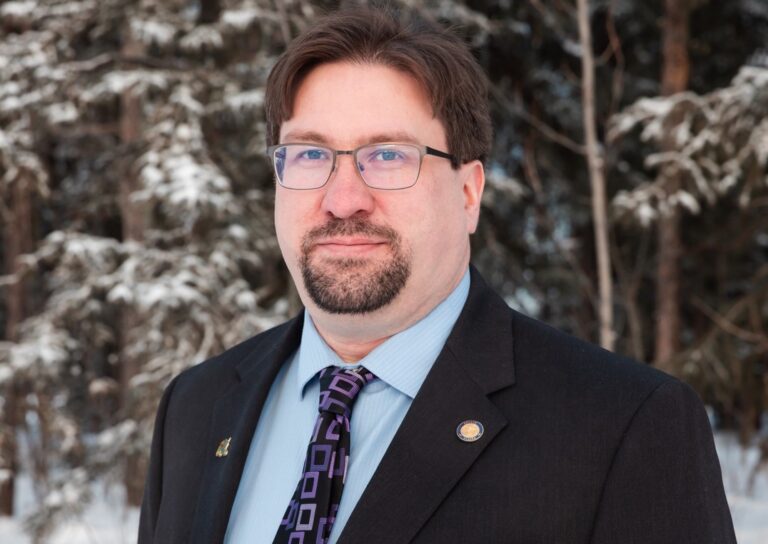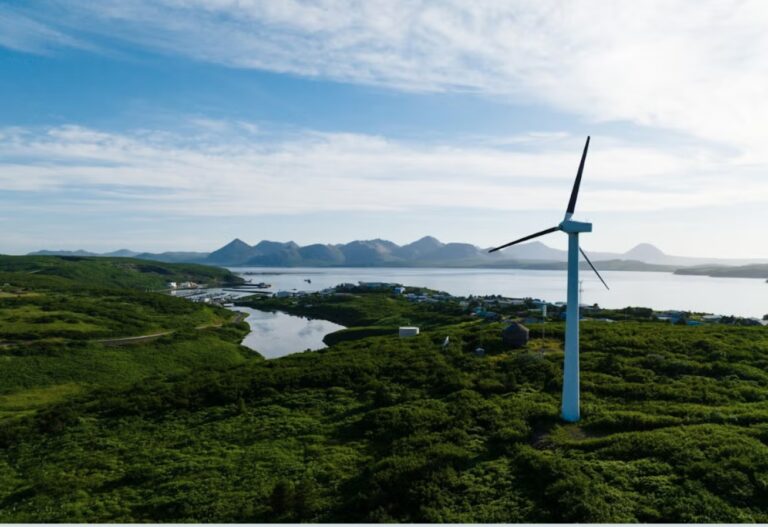By SEN. ROBB MYERS
The Permanent Fund has changed in both its investments and its use since it was first created in 1976. Originally, it was invested in just bonds, the safest investment vehicle out there. The two-account structure envisioned by the constitutional amendment that created the fund and the subsequent enabling legislation in the late 70s and early 80s reflected that type of investment. The principal is invested and not spent. The earnings are held in the Earnings Reserve Account and available to be spent.
Since then, we’ve passed legislation over the years to allow for investments in public stocks, private equity, real estate, and nearly every other investment vehicle under the “prudent investor” rule. Those other investment vehicles mean that we can make money off of the sale of the assets rather than just the income from the bonds.
Until 2018, the only money spent from the fund was a highly variable draw for the PFD. Starting in 2018, the legislature has been using a draw of an average of 5% of the total market value (referred to as the POMV draw) to pay for both government services and dividends.
With the change in both the investment structure of the fund and its use for state spending, it has been proposed to alter the constitutional structure of the fund by combining the principal and Earnings Reserve Account into one account and constitutionalizing the POMV draw. The Alaska Permanent Fund Corporation has been suggesting this since the late 90s. To that end, the Senate Finance Committee has introduced Senate Joint Resolution 14 to make that constitutional change. Let me show you how that it a bad idea, both for the health of the fund and the health of the state as a whole.
The first thing that should give us pause is that the reasons for changing the fund have vacillated over the last few years. We’ve heard that we need to protect the fund because the legislature could always draw more than the 5% from the ERA, draining to zero. But we’ve also heard that the ERA doesn’t have enough money in it, so we need access to the principal. So do we have too much money or not enough?
The odd part to me is that the legislature appears to be trying to force the issue over the last few years. In 2019, the legislature tried to move the entire ERA balance (nearly $13 billion at the time) into the principal, calling it future inflation proofing. This would have required us to combine the funds immediately to allow for making the draw for government spending the following year. Fortunately, the governor vetoed that down to $4.9 billion.
Then the legislature moved another $4 billion over in 2021. In 2022, we started seeing news stories that there may not be enough money in the ERA for the draw in the near future. We still have about $2.5 billion in the principal that should be in the ERA. In 2024, I tried a floor amendment to cancel the inflation proofing, warning of this very problem. I was shot down. Personally, I don’t trust a group that says we need a particular solution but then tries to create a crisis to make that solution happen.
The fundamental problem for the health of the fund is that the draw rate is too high. Currently, it is 5% of the average value of the fund over the last five years. So that means that we have to earn an average of 5% plus the rate of inflation plus the APFC’s management fees, which have been around 1% of the fund’s value over the last few years. We’ve only hit that target once in the last six years. The APFC’s projection for the next ten years that was published at the end of June called for the average return to be 7.65% and inflation 2.5%. That gives us a net return of 5.15%. Then we subtract the 1% management fees, giving us an effective return of 4.15%. So we’re already underwater with a 5% draw rate.
The five-year rolling average helps smooth things out to some extent, but it’s not enough. The result of the rolling average has been an effective draw rate over the last few years of about 4.5%. But that is because we’ve largely been in a rising market. The reverse is also true. If we’re in a flat or falling market, that effective draw rate will rise, possibly even over 5%. And the real problem is that a rolling average is meaningless if the draw outpaces the earnings on a regular basis.
A few months ago, the APFC told the legislature that there is roughly a 46% chance in the next few years that there will not be enough money in the ERA for a 5% POMV draw. Yet again, they use that to justify combining the accounts. But what we should be saying is that there is a 46% chance that they draw rate is too high. In theory, we could lower the draw rate. A draw of 4 to 4.5% would likely solve the problem. We could either lower the draw rate in SJR 14 or simply draw less than we’re allowed in any given year.
But that would mean that the legislature would have to spend less. What is the chance of that? When oil process spiked after the Russian invasion of Ukraine, I ran an amendment to the budget on the floor to cancel the portion of the POMV draw that we were going to use for government. I argued that we had enough money to do what we needed to do. Instead, the legislature kept it in there and spent it on nearly a billion-dollar supplemental budget. They also added more spending to the 2022 budget over the previous year. Given the opportunity to do something for the health of the fund when we had the money, we didn’t take it.
The high draw rate highlights the problem with combining the accounts. It removes the floor on how far the value of the Permanent Fund can drop. Drawing too fast risks depleting the fund over the long-term. At a minimum, we will draw fast enough that growth will not be able to keep up with inflation. While the numbers might be going up, the buying power of the fund will be dropping. That is what we appear to be doing now. In a worst-case scenario, the fund value overall can start to drop because we are drawing too much.
With the current two account structure, there is a floor on how low the fund can drop. Once the ERA is empty, the spending stops, and the fund can’t drop any more. Once we combine the accounts, that floor is gone. We can theoretically spend the fund to zero. Part of the argument is that we need to constitutionalize the POMV draw to prevent the legislature from drawing too much in any one year. But what that does is swap a permanent, hard floor for a one-year floor that can readjust lower every year. We’re substituting short-term certainty for long-term uncertainty.
Removing the floor highlights the real reason we’re trying to combine the accounts. It’s not about managing the health of the fund. It’s about managing the health of the spend. There are lots of ways to manage large funds and the spending from them. The best health of the fund would be to tie the draw to earnings. That is what the old PFD formula did. We shouldn’t be tying the draw to an arbitrary percent of total value. In their writings and presentations supporting the POMV concept, the APFC says that it will provide “a stable and predictable distribution.”
But shouldn’t we be aiming for a stable and predictable fund? The health of state spending requires a stable and predictable distribution. The health of the fund requires the distribution to be variable, based on earnings.
The point of combining the accounts is state spending, and we really haven’t examined the full effects of using the Permanent Fund as our primary revenue source of state funds for government. The draw from the Permanent Fund is projected to be roughly three times the amount the state takes in from oil this coming year. What does that do to both state government and the state’s economy? First off, oil and market earnings tend to move together. Twenty years ago when the United States was a net oil importer, higher oil prices tended to hurt the national economy and lower market returns. Now that the US is a net oil exporter, higher oil prices tend to mean higher market returns. So we’ll have higher oil money at the same time as higher draws from the Permanent Fund, and vice versa. So we’ll increase the yo-yo nature of both our budget and our state’s economy.
The final problem is how using the Permanent Fund changes our government’s thinking, especially about the economy. We’ve had a lot of comments from legislators this year that the legislature doesn’t want economic growth unless it provides money to the state. They view economic growth as a cost to the state rather than a benefit. We’ve known for a while now that the legislature largely ignores economic growth not tied to state revenue or state spending. Growth that provides money to government is seen as useful. Growth that comes from state spending is good because it helps assure support from interest groups for reelection. Now that attitude is being made explicit. By moving towards increased reliance on the Permanent Fund for state revenue, the legislature will have less reason to want the private economy to grow. As oil becomes less of a driver of revenue and the Permanent Fund more so, even interest in oil will fade.
Some back of the envelope math shows the problem. We could end oil development tomorrow, end the Permanent Fund Dividend, and institute a small (2-4%) broad-based tax (either sales or income), and the state could run completely off of that plus the Permanent Fund draw. We could do the same for every other type of resource development in the state. Our government would move from a resource-based model to a trust fund baby state. Why would it want to do this? It’s very simple, and other moves in the legislature this year highlight it. While we’ve spent a lot of time talking about how we’re short on money, the actual revenue bills that have been introduced and moved share a common feature. They look for someone other than regular Alaskans to fund government so that the true cost of government is hidden and there is less pushback on spending from voters.
The rallying cry at the nation’s founding was “no taxation without representation.” Modern economists have taken that phrase and turned it on its head. They say that there is “no representation without taxation” because the government will not care about the welfare of a group that does not provide its money. So long as a government can get the majority of its revenue outside of the people as a whole, they won’t care about the people’s welfare as a whole. It will care about just enough people (and just the right people) to get reelected.
In testimony to the Senate Resources Committee earlier this year, Deven Mitchell, the executive director of the APFC, said that we are moving to a place where our government is effectively “retired” because we’re drawing most of our money from passive investments. Most governments have to work hard for their money by providing a stable climate for economic growth. Ours does not. Do we as citizens want a government that is retired and sees jobs and businesses that benefit Alaskans as a cost rather than a benefit? That is what using the Permanent Fund as our primary revenue source does.
Changing the Permanent Fund structure to provide a stable revenue source for the state is a mistake. It hurts the fund, and it hurts the rest of us who don’t depend on government for a living. We would create a structure that would eat the seed corn while planting it in the government’s field rather than the people’s. The rest of us are then out of luck.
Senator Myers represents Alaska Senate District Q, which includes Chatanika, Fox, Two Rivers, North Pole, Eielson Air Force Base, Salcha, Anderson, Clear, Cantwell and Healy.
Robb Myers: Prioritize prosperity over politics









